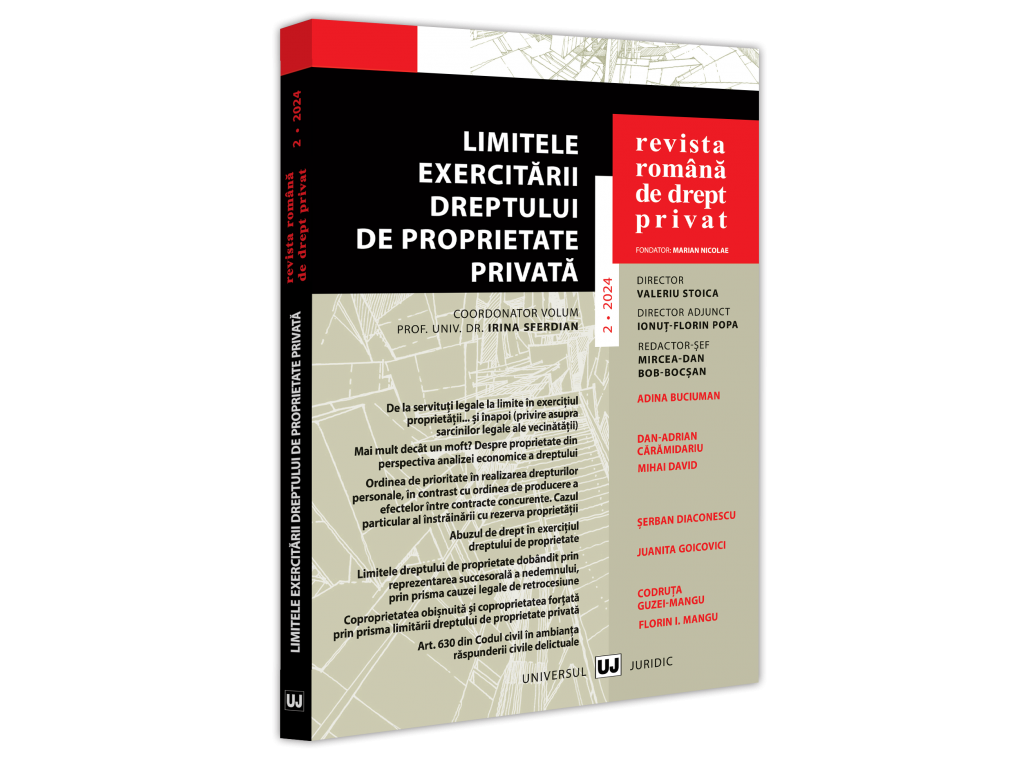Garantarea restituirii prestaţiilor
Guarantee of restitution of benefits
Author(s): Sergiu CăileanuSubject(s): Law, Constitution, Jurisprudence, Civil Law
Published by: Universul Juridic
Keywords: restitution; benefit; security; mortgage; substitution; accesorium sequitur principale;
Summary/Abstract: The refund of benefits represents, even after more than 10 years from the entering into force of the Civil Code, one of the emergent concepts of civil law, due to the new general frame of restitutions drawn up by the Romanian legislator. Dynamic by its nature, the refund of benefits raises most variate theoretical difficulties, starting from its legal nature to its connection with other legal concepts, likewise good and bad faith and continuing to the changes that are caused to the substance of the benefits owed to the other party. Consequently, the matter of restitution generates a large spectrum of practical problems, the parties and/or the courts being called to determine and apply the correct equation of the refund of benefits to a certain case, regarding both the duties that shall bond the partis and the effects towards third parties.One of the most interesting debates in the field of restitution, from both theoretical and practical points of view, is determined by the “survival” of the securities constituted at the conclusion of the contract for the purpose of guaranteeing the primitive obligation, even in those situations in which this obligation is terminated with retroactive effect. This “survival” is justified, as theoretical concept, as a derogation from the accesorium sequitur principale rule. However, this substitution shall change the primary security in terms of parties, legal nature and object.In order to determine the sphere of applicability of art. 1.635 para. (3) of the Civil Code, it is mandatory to use, alongside with the grammatical interpretation of the norms, the systemic and logical interpretations as well. Thus, in order to determine which type of securities can survive to the termination of the contract, and in which cases, one must take into consideration the particular scheme of securities in a given case and, of course, the particularities of the securities [personal, real or autonomous securities].Although the security survives de jure, by law, the party which is entitled to receive the benefit that is guaranteed by this security may find several difficulties in its attempt to benefit of the effects of the security mechanism giving the fact that the provisions of art. 1.635 para. (3) of the Civil Code are not corelated with the special provisions in the field of securities and in publicity of rights.By this paper, I aim to bring some clarifications on this new security mechanism, to determine its legal consequences and how it can be interpreted and corelated with the other provisions regulated by the Civil Code and the special legislation of publicity of rights.
Journal: Revista Română de Drept Privat
- Issue Year: 2024
- Issue No: 02
- Page Range: 347-412
- Page Count: 66
- Language: Romanian
- Content File-PDF

